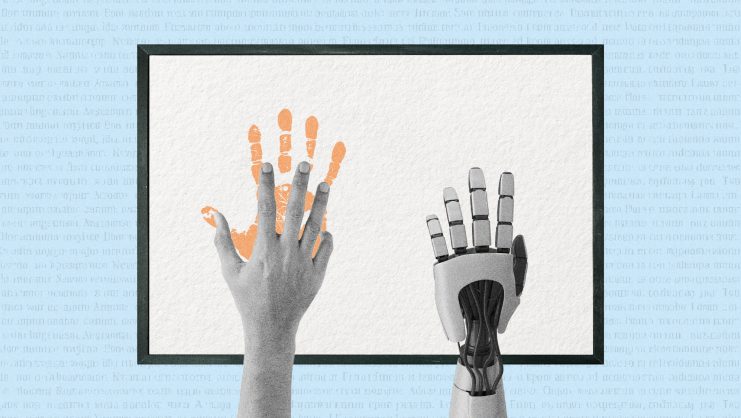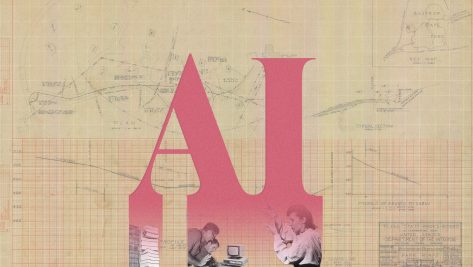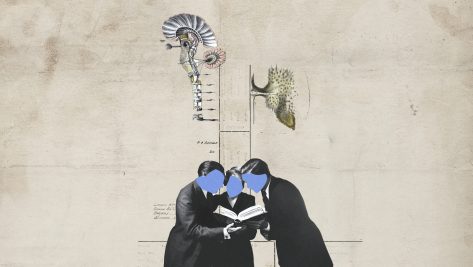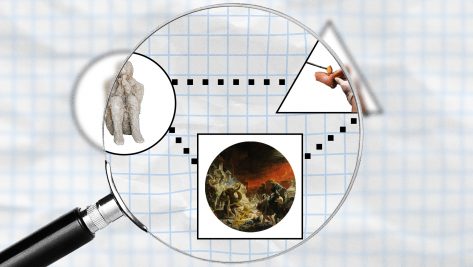Is it possible to control our emotions as a way to achieve inner peace and happiness? According to British philosopher John Sellars, author of Lessons in Stoicism: What Ancient Philosophers Teach us About How to Live, the answer is yes. This goal is feasible and the key lies only in personal motivation and daily practice led by a certain way of thinking.
The number of English-language publications on the topic of stoicism is expansive – not only in English but in languages such as Spanish and French, among many others. In these books on stoic philosophy (and frequently on its main representatives Seneca, Epictetus, and Marcus Aurelius), lies the idea that those classical Greek and Roman authors remain fully valid and relevant and that, in fact, it is possible to become happy – that quintessentially modern goal – by putting their teachings into practice.
However, upon reading Sellars’ book, one gets the impression that these teachings are sometimes just easy recipes that ignore the complexity of individual situations, not to mention the enormous distance (in all senses) that separates our world from that of Classical Antiquity. But, let’s present some essential ideas from the book and include some quotes from the original texts, so that the reader can judge for themself.
First, of course, a definition of Stoicism would be appropriate. According to Britannica, “stoics have always believed that the goal of all inquiry is to provide a mode of conduct characterized by tranquility of mind and certainty of moral worth.” The Stanford Encyclopedia of Philosophy notes that “the stoics did, in fact, hold that emotions… either were, or arose from, false judgments and that the sage -a person who had attained moral and intellectual perfection- would not undergo them.” The same source reminds us that “the name of this ancient school of thought derives from the porch (stoa poikilê) in the Agora at Athens… where the members of the school congregated, and their lectures were held.”
External events or others’ emotions are not inherently good or bad.
Throughout seven chapters and following the stoics, Sellars proposes some principles that should be incorporated into our lives for our benefit. The first is to consider the philosopher as a doctor who makes us aware that the positivity or negativity of things resides in our perception of them. This essential idea connects with those of the second and third chapters: the only thing in life we can control is our judgment, which creates our lasting emotions and, for that, we need to understand that we control very little in life, not over other people, not the events that happen to us, not our bodies. External events or others’ emotions are not inherently good or bad and the solution to avoid its negative impact on our lives is within our reach: it consists in exercising a virtuous character to become wise, just, courageous, and moderate. By knowing ourselves, it is possible to overcome our weaknesses.
Seneca (On Anger, 1.7) said on this topic: “In the first place, it is easier to banish dangerous passions than to rule them; it is easier not to admit them than to keep them in order when admitted; for when they have established themselves in possession of the mind they are more powerful than the lawful ruler… In the next place, Reason herself, who holds the reins, is only strong while she remains apart from passions; if she mixes and befouls herself with them, she becomes no longer able to restrain those whom she might once have cleared out of her path… There are certain things whose beginnings lie in our own power, but which, when developed, drag us along by their own force and leave us no retreat.”
This central argument is completed by Sellars with the proposals of the following four chapters, in which some concrete situations of the life of the human being are analyzed. For example, dealing with adversity, which should be considered only as a field prepared for our personal improvement. Instead of seeing adversity or difficult circumstances as a bad thing happening to us, we can choose to view them as an opportunity to become better, to develop our virtuous character. We must also reflect on the events that might happen to us and the ones that certainly will happen; if we anticipate those events, potential and inevitable, then we would be able to deal with them when they occur.
The Stoics argue that the Earth and everything in it is a single, living system.
Seneca (On Providence, 2.2) wrote: “Why do many adversities come to good men? No evil can befall a good man… The assaults of adversity do not weaken the spirit of a brave man. It always maintains its poise, and it gives its own color to everything that happens; for it is mightier than all external things. And yet I do not mean to say that the brave man is insensible to these, but that he overcomes them, and being in all else unmoved and calm rises to meet whatever assails him. All his adversities he counts mere training.”
We also may find in Sellars’ book some other reflections, now on our position in nature and in society and its relationship with the development of a virtuous life. The Stoics argue that the Earth and everything in it is a single, living system. We are all parts of this system, and therefore everything we do affects other parts of the system. This means that all humans are connected and have a duty to care for the planet. The Greeks, since the pre-Socratic times of 7th-5th C. BCE, were especially concerned with movement and change (kairós), and in fact, we can see in that concern the very origin of Philosophy. This includes the idea that everything happens for a reason because something else caused it to happen. Understanding that there is a reason for everything can help us to accept events that occur, particularly those that seem beyond our immediate control.
Due to the topicality of these affirmations, the original thought from Marcus Aurelius (Meditations, 10) becomes relevant: “Whether the universe is a concourse of atoms, or nature is a system, let this first be established, that I am a part of the whole which is governed by nature; next, I am in a manner intimately related to the parts which are of the same kind with myself… By remembering, then, that I am a part of such a whole, I shall be content with everything that happens.”
We are part of nature, but on top of that, how should we live together in our society? The stoics were in the habit of withdrawing into themselves to reflect but they also believed, like Aristotle, that we are political animals. We are integrated into communities: family, locality, country, and, ultimately, the community of all human beings. The objective of this withdrawal from the world is to cultivate virtue to become better, more beneficial members of the different communities of which we are a part.
Finally, what should be our relationship with death? Time is the most precious thing we have and to live well, we must make good use of this time, by treating each day as if it was our last, using every second wisely. In addition, we may view everything in life as merely on loan and that includes possessions, other people, and indeed, our own lives. One day, we will simply no longer have these things and now we have the opportunity to be grateful for what we temporarily have and love.
On this topic of the importance of enjoying every moment, Seneca (On the Shortness of Life, 7) warned that our daily life and possessions can prevent us from really enjoying what we are and what we do: “Search into the hours of all these people, see how much time they give to accounts, how much to laying snares, how much to fearing them, how much to paying court, how much to being courted, how much is taken up in giving or receiving bail, how much by banquets -for even these have now become a matter of business- and you will see how their interests, whether you call them evil or good, do not allow them time to breathe.” And Epictetus (Enchiridion, 10) stated: “Remember that you are an actor in a drama of such sort as the author chooses; if short, then in a short one; if long, then in a long one… See that you act it well… For this is your business, to act well the given part.”
There is little doubt about the beauty and attractiveness of this ancient way of thinking and its vital proposals. These readings pose answers, but they also leave ample room for new interrogations that may even question the validity of many of those affirmations. For example, should we deny ourselves suffering? Feeling pain and overcoming it, isn’t this also a way of overcoming adversity? Or, as mentioned earlier, can we forget the exceptionality of the individual and personal circumstances, for which all this would be nothing more than a beautiful speech, but lacking in practical application? Is it possible to incorporate these ideas into our daily lives? Readers must find their own answer.
© IE Insights.











